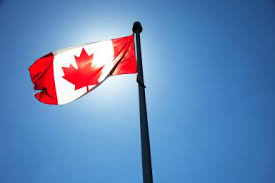Civilization, after all, is not national — it is international — even though that observation, trite as it is to most of us, seems to be challenged in some parts of the world today… In a large sense, we in the Americas stand charged today with the maintaining of that tradition… We know the sorrow and the wreckage which may follow if the ability of men to understand each other is rooted out from among the nations.
FDR: ADDRESS AT QUEEN’S UNIVERSITY, KINGSTON, ONTARIO 18 AUGUST 1938
 Eighty-three years ago, during the negotiations for the 1935 Reciprocal Trade Agreement between Canada and the United States, President Franklin Delano Roosevelt and Prime Minister William Lyon Mackenzie King began a friendship that would prove critical to both nations in the decade to follow. Although the two men had not met previously, they shared a Harvard connection: FDR received his B.A. in 1904; King his doctorate in 1909. Likewise, the pair discovered that they shared a world-view: both FDR and King understood that close cooperation between our countries was required to realize their goal of a peaceful and prosperous hemisphere.
Eighty-three years ago, during the negotiations for the 1935 Reciprocal Trade Agreement between Canada and the United States, President Franklin Delano Roosevelt and Prime Minister William Lyon Mackenzie King began a friendship that would prove critical to both nations in the decade to follow. Although the two men had not met previously, they shared a Harvard connection: FDR received his B.A. in 1904; King his doctorate in 1909. Likewise, the pair discovered that they shared a world-view: both FDR and King understood that close cooperation between our countries was required to realize their goal of a peaceful and prosperous hemisphere.
Recently, in the United States and elsewhere, some have begun to question the intertwined nature of our global existence, with pugilistic nationalism taking the place of international negotiation. Canada has not only resisted these trends, but in fact redoubled its efforts at preserving and promoting a global order based on rules. Given the strong Harvard-Canada connection, and the historical friendship between two of North America’s greatest leaders, we are honored to host the Consul General of Canada to New England, David Alward.
—–
